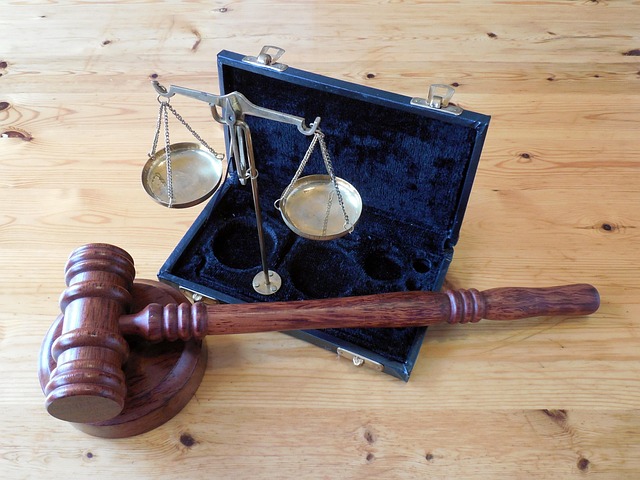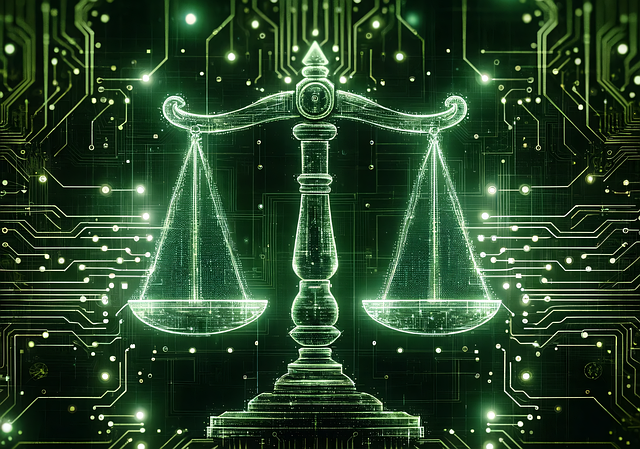Criminal law, a global framework, manages responses to criminal acts while balancing punishment and rights protection. The initial stages involve arrest based on probable cause, Miranda rights, and prosecutor decision-making. Trial processes, including evidence collection, grand jury indictments, hearings, discovery, and motions, culminate in guilt or innocence determinations by judges or juries. Post-trial phases include sentencing, appeals, and high-stakes decisions impacting public perception and legal practices. White-collar crimes require navigating complex regulatory frameworks, influencing strategies from investigation to trial. Understanding these Understanding Regulatory Law Litigation Stages is vital for effective criminal law practice in today's evolving legal landscape.
Delve into the intricate world of criminal law cases, exploring each stage from arrest to appeals. This comprehensive guide breaks down the complex system, providing insights into its purpose and key players. From initial litigation stages to post-trial proceedings, uncover the challenges and trends shaping regulatory law. Understand how arrests lead to indictments, trials unfold, and sentences are determined, with a focus on navigating these crucial steps effectively.
- What is Criminal Law and Its Purpose
- The Initial Stages of Criminal Litigation: From Arrest to Indictment
- Understanding the Trial Process and Key Players
- Post-Trial Proceedings: Sentencing and Appeals
- Common Challenges and Trends in Criminal Law Cases
What is Criminal Law and Its Purpose

Criminal law, a cornerstone of legal systems worldwide, is a branch dedicated to regulating and punishing criminal behaviour while safeguarding individual rights. It defines what acts are considered crimes, establishes punishments for offenders, and ensures justice for victims. The primary purpose of criminal law is not merely punitive but also serves as a deterrent, aiming to prevent potential criminals from engaging in unlawful activities by imposing strict consequences.
Understanding the various litigation stages within criminal law is essential. The process involves investigation, arraignment, pretrial proceedings, trial, and sentencing. Each stage plays a critical role in ensuring fairness and due process for both the accused and victims, allowing for the pursuit of justice. An unprecedented track record across the country in respective business sectors underscores the effectiveness of these legal procedures in maintaining public safety and order.
The Initial Stages of Criminal Litigation: From Arrest to Indictment

The initial stages of criminal litigation are pivotal, marking the beginning of a legal process that can significantly impact an individual’s life. It starts with an arrest, often initiated by law enforcement officers based on probable cause, evidence, or witness statements. Once detained, the accused is read their Miranda rights, ensuring they understand their legal protections during questioning. This critical step ensures that any statements made are done so voluntarily and can be used in court.
Following the arrest, prosecutors review the case details, including police reports, laboratory findings, and witness accounts. Based on this assessment, they decide whether to file charges, initiating the formal criminal prosecution process. If charges are brought, the accused is formally notified, typically through a summons or an indictment, outlining the specific crimes alleged against them. This stage is crucial as it sets the stage for subsequent legal maneuvers, including plea bargains, pretrial hearings, and ultimately, jury trials in high-stakes cases, where the outcome can lead to a complete dismissal of all charges or severe consequences for the defendant.
Understanding the Trial Process and Key Players

Understanding the trial process is crucial in Criminal Law Cases, as it determines the fate of those accused. This journey begins with an investigation where law enforcement gathers evidence. If sufficient grounds exist, an indictment is sought from a grand jury, marking the official start of litigation. The subsequent stages involve pretrial hearings, discovery processes, and pre-trial motions where legal strategies are refined by key players such as prosecutors and defense attorneys.
During the trial, these lawyers present arguments and evidence before a judge or jury, who ultimately decides guilt or innocence. Key players include the prosecutor, responsible for proving the charges beyond a reasonable doubt, and the defense attorney, aiming to either secure a complete dismissal of all charges or achieve a plea bargain. The involvement of philanthropic and political communities in these cases is significant, as they can influence public perception and advocate for fair treatment within the legal system.
Post-Trial Proceedings: Sentencing and Appeals

After a criminal trial, the proceedings enter a critical phase—post-trial. This is where the court decides on the appropriate sentence for the convicted individual and also handles any appeals that may have been lodged by either party. Sentencing is a complex process that considers various factors, including the severity of the crime, the offender’s background, and mitigating or aggravating circumstances. It’s during this stage that the judge determines whether to impose a fine, community service, probation, or incarceration, often with specific conditions attached.
Appeals are a significant part of understanding regulatory law litigation stages, providing an avenue for both defendants and prosecutors to challenge the verdict or sentence. High-stakes cases often traverse through multiple levels of appeal, with arguments presented before higher courts across the country. These appeals can lead to important decisions that shape criminal law and influence practices within the philanthropic and political communities.
Common Challenges and Trends in Criminal Law Cases

Criminal law cases often present a unique set of challenges due to their complex nature and the high stakes involved. One of the primary difficulties lies in navigating the intricate regulatory frameworks that govern various industries, especially with the ever-evolving legal landscape. Understanding these regulations is crucial for both prosecutors and defense attorneys, as it significantly impacts the litigation stages, including investigation, charging decisions, and trial strategies.
A notable trend in recent years has been the increase in white-collar and economic crimes cases, reflecting a shift in criminal activity towards more sophisticated and complex offenses. These cases demand a nuanced approach, requiring legal professionals to delve into financial records, identify patterns of fraud or corruption, and interpret complex business transactions. Moreover, defendants often employ strategies to avoid indictment, posing additional challenges for law enforcement and prosecutors. An unprecedented track record of successful prosecutions in these areas highlights the importance of adapting legal practices to meet these evolving demands.
Criminal law, with its focus on regulating society and ensuring justice, goes through a multi-staged litigation process. From arrest to indictment, trial, sentencing, and appeals, each step is crucial in upholding the integrity of the legal system. By understanding these key stages (Understanding Regulatory Law Litigation Stages), we can appreciate the complexity and importance of criminal law cases. Common challenges and trends highlight the need for continued adaptation and improvement within the legal framework to ensure fairness and justice for all.






